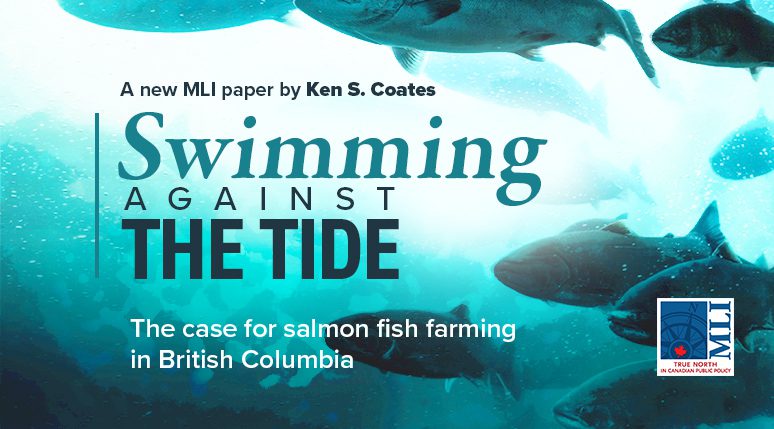By Ken S. Coates
February 20, 2025
Executive Summary
In the summer of 2024, the Government of Canada banned new salmon farming licences on the West Coast, allowing existing farms to keep operating until 2029. Fish farms had one option for business survival: adopt a commercially unproven closed containment and land-based salmon farming technology.
The decision to end salmon farming represents the triumph of activism over science, signalling the further erosion of the economies of vulnerable coastal communities. If left unchallenged, the government’s decision will destroy a vibrant and successful industry, undermine a key Canadian export, and harm coastal and First Nations’ economies.
Salmon farming in British Columbia changed dramatically over the years, part of a long struggle to rebuild coastal economies and solve the puzzle of declining wild salmon stocks. Initially, the industry’s rapid expansion stalled in the face of scientific questions about the impact of farmed salmon on regional eco-systems, criticism from wild salmon activists, and opposition from some First Nations. This led to pullback, with many pens closing and the industry collaborating with interested First Nations and leveraging global innovations.
Around the world, the salmon farming industry has grown dramatically to meet the demand for high-quality protein. With declining wild fish harvests and strong efforts to bring order to the biological turmoil on the high seas, farmed salmon appeared to be a logical and urgently required alternative.
Yet, the long-term decline of the West Coast wild salmon harvests concerned government officials, academic scientists, and supporters of wild salmon. Activists, with strong cross-border organizations and funding, used social media and activism to turn public and political opinion against fish farming. The federal government, particularly B.C. Liberal Cabinet ministers Joyce Murray and Johnathan Wilkinson, adopted the activists’ views.
However, salmon farming has strong supporters, including First Nations communities that engage in the activity and appreciate the economic stability it provides. Coastal communities, reeling from long-term declines in commercial fishing and forestry, see salmon farming as a lifeline – contributing significantly to the provincial economy.
Unfortunately, the BC government – by choosing not to appeal a recent court ruling that handed the management of salmon farming over to the federal Fisheries and Oceans Canada – has turned its back on the industry. Research does not point to salmon farming as the culprit for the worrisome decline in the wild West Coast salmon population. Despite this, the Government of Canada has acquiesced to the activists’ demands.
Salmon farming (which has a smaller footprint on the East Coast) could benefit Canada by providing economic stability to coastal communities, fostering greater co-operation with First Nations (including those supporting and opposing the farms), driving technological innovation, and protecting wild salmon.
Moving forward requires reversing the outright ban, and returning to evidencebased decision-making that relies on government scientists, Indigenous knowledge, and academic experts. Reinstating the Government of British Columbia as the primary authority over an industry more akin to cattle ranching and agriculture then wild fish harvesting would also help.
The ban on West Coast salmon farming exemplifies the dangers of special interestdriven decision-making. Canada has time to get it right, but the nature of the federal decision has allowed emotion to override effective policy-making.
Read the full paper here:







